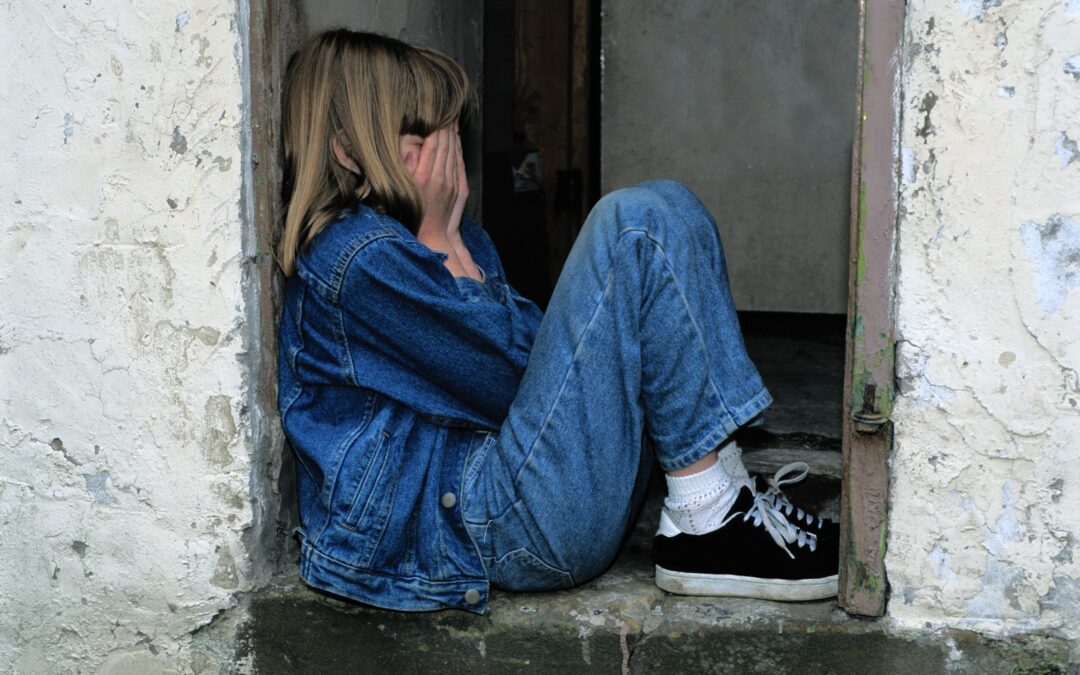Sexual abuse is a very wide topic and unfortunately is happening in epidemic proportions, both in the United States and worldwide. One out of 9 females experience sexual abuse by an adult. These children are four times more likely to develop drug use and abuse, and experience Post Traumatic Stress Disorder (PTSD). It is a broad topic and covers anything from sexual abuse within the family; by caretakers, grandparents, siblings or other relatives. Sexual abuse is also commonly perpetrated by strangers.
Sexual abuse can happen at any age,to any sex, and any stage, from infancy into adulthood. Children of both sexes are vulnerable. Children most vulnerable to sexual abuse are children who come from broken families or families who are in high conflict. When families do not create safety, they are not protected.
Children most at risk often from high conflict divorce families, and or have parents who suffer from drug abuse, alcohol abuse and other addictions. Parents who are apathetic and don’t pay appropriate attention to their children, leave their children vulnerable to predators, or worst predators from within, meaning sexual abuse by their own parents.
One of the most horrific forms of betrayal is being sexually abused by your own mother or father. Not only is this a complete violation of the body, it also violates the interbeing of the child so deeply that all trust in the world is broken.
Who does a child have to turn to if they cannot turn to their own parents? I often see cases where one parent sexually abuse is the child, and the other parent refuses to believe the child and or ignores the symptoms. This horrific act of omission, in other words the act of omitting to protect the child, puts the child in great jeopardy. This creates what I refer to as a double dungeon effect where the child has absolutely no one to turn to so they feel locked in this dark place with nowhere to go.
Sometimes even worse than the actual abuse is the abuse by betrayal. When parents ignore the signs or deny the sexual abuse, it can confuse the child and make them think that it didn’t really happen at all, and or that they were to blame.
Because children want to protect their parents and continue to idealize them, the blame and shame they experience within themselves is their best attempt to continue to see their parents as protectors. You can imagine that it would be too scary to have it be otherwise.
Sometimes children of sexual abuse will dissociate, or split off from the pain and the memory. After all, who wants to be there mentally and emotionally when this is going on? Because it is so outrageously outside human decency and dignity, it is impossible to process, therefore the splitting.
Along with the emotional pain is the physical pain that a child experiences. Trauma to the genitals, sexually transmitted diseases, and even death are the dire consequences.
What about the long-term effects? Sexual abuse has a myriad of long-term effects. Post traumatic stress disorder is a common response, especially if the abuse is not treated immediately. Flashbacks, nightmares, emotional numbing, startle responses; these can lead to depression, anxiety, body dysmorphia, or hatred of the body, drug abuse, and other symptoms including thoughts of suicide and sometimes acting upon it.
Sexual abuse has dire consequences on future relationships. Some individuals develop an aversion to the opposite sex, for example if the abuser was a male, the female may not want to be penetrated by a male ever again. This is common because we generalize cues that create or cause danger in order to protect ourselves. By avoiding men, they feel they’re avoiding their trauma. Another common side effect is developing sexual addiction or increased promiscuity. This weakens boundaries, making survivors more vulnerable to unwanted pregnancies.
Other ways sexual abuse impacts relationships include fear of intimacy, and even avoiding it. For instance, many individuals who are sexually abused show signs of startle responses if touched. This can cause feelings of rejection in the other partner. Not surprisingly this can lead to the dissolution of a family in the form of a breakup or divorce.
On a larger scale, we are experiencing a global problem of sex trafficking and using children to satisfy the sexual needs of adults. The industry is sickly lucrative and once children are trafficked, it is incredibly difficult for them to escape. Because they have no means of feeding, clothing or protecting themselves, they truly are hostages to the situation.
FROM A MIND MAP PERSPECTIVE
Sexual abuse is another multigenerationally transmitted “system gone wrong”. From a Mind Map perspective we psychologically inherit the behaviors and patterns of our family of origin. That is why it is so important to attend to the effects of this abuse on the psyche. By ignoring them we are more likely to pass the abuse on to the next generation either in the form of perpetrating the abuse, or becoming so depressed and anxious that we are unable to properly parent our children.
In essence, from the perspective of the Mind Map childhood sexual abuse is a childhood wound that creates traumatic reactions which encode into destructive negative core beliefs; beliefs like I’m not lovable, I’m worthless, I’m dirty, I’m disposable, the world is not to be trusted.
Sexual abuse leads to multiple defense mechanisms including numbing the pain with substances or acting out by engaging in porn or sexual promiscuity, pushing the person further and further away from human connection.
Here are some of the statistics:
- 93% of child victims know their abuser.
- Victims are 3 times more likely to experience a major depressive episode.
- One study showed that 32% of child sexual abuse victims attempted suicide.
- 1 in 20 boys are victims of sexual abuse.
- Children are most vulnerable between the ages of 7 and 13.
If you or a loved one have suffered from or are experiencing sexual abuse, please get help immediately! You can contact your local Department of Children and Family Services (DCFS) to file a report.

